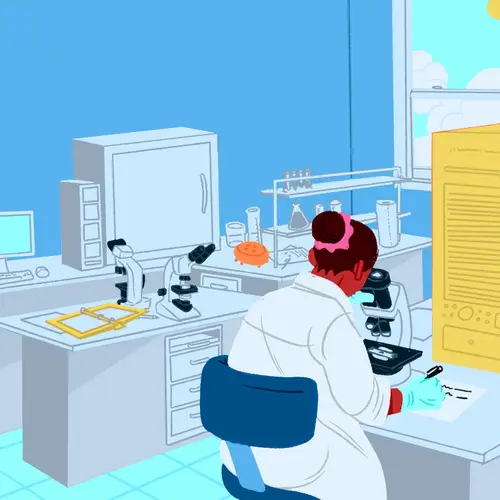It's a lot easier to prevent a heart attack when you and your doctor know what's going on in the vessels that carry blood through your body. The big question: Are they blocked with plaque or free flowing? To find out, you may get a high-tech imaging test that shows a clear picture of your arteries. There are several types of these tests, and each has its pros and cons.
Carotid Ultrasound
For this painless test, an ultrasound technician uses a handheld wand on the outside of your neck. It makes sound waves that bounce off the tissue inside the carotid artery in your neck to create images.
The test can detect blockages that can lead to stroke. It determines how narrowed your artery is by combining the images with measurements of how fast your blood is flowing.
Who should get it? If your doctor suspects you've had a stroke or mini stroke (if you've had a loss of vision, for example), you're definitely a candidate for this test, says cardiologist Mark F. Sasse, MD, associate professor of cardiovascular medicine at the University of Alabama at Birmingham School of Medicine. If you have a blockage greater than 50%, your doctor may suggest you get a carotid ultrasound every year.
If you haven't had any previous stroke symptoms, your doctor will check you with a stethoscope first. He'll listen to the blood moving through your carotid artery. If he hears a "bruit," a noise related to uneven blood flow, he might recommend a carotid ultrasound.
Some doctors recommend the test if you have two or more risks for stroke:
- High blood pressure
- High cholesterol
- History of smoking tobacco
- A parent or sibling with heart disease or a stroke before age 60
- Family history of ischemic stroke (caused by a blocked blood vessel to the brain)
Pros. It's easy to perform, doesn't involve radiation, and is relatively inexpensive.
Cons. There's limited evidence that it prevents stroke. Also, certain differences in your blood vessels can make the test less accurate, and you could need other tests.
Coronary Calcium (Ultrafast CT Scan)
A standard CT-scan machine takes an image of your heart in this test. It measures how much calcium has built up in the plaque in your arteries.
There's a strong link between the amount of calcium in your arteries and having coronary heart disease, including how widespread the disease is.
Who should get it? Henry Patrick, MD, a cardiologist in Baton Rouge, LA, says the test is useful for middle-aged people who have:
- Borderline to mildly raised cholesterol levels
- A relative who got coronary artery disease (CAD) before age 50
Patrick says he uses coronary artery calcium to decide:
- Whether to start someone on aspirin and statins
- If someone needs a screening stress test
- When to schedule follow-up visits
This test isn't used if you already have coronary artery disease.
Pros. It's inexpensive, painless (you lie in the scanner for about 10 minutes), and can give you more information than other tests.
Cons. Because it can't see "soft plaque" that hasn't calcified, it may not be as useful when you've had sudden symptoms. While the test lets your doctor know the likelihood of heart disease, it can't show how severe any blockages are.
The only real risk is radiation exposure from the CT scan.
Another downside: The test isn't covered by some insurance plans.
Heart CT Scan (Coronary CT Angiogram)
This test checks for blockages in arteries that supply blood to your heart.
You'll get a beta-blocker medication to slow your heart, says Steven G. Lloyd, MD, PhD, an associate professor of medicine and radiology at the University of Alabama at Birmingham School of Medicine. Then a nurse will insert dye into your arteries through an IV, which will help show any blockages while you have a standard CT scan.
Who should get it? The heart CT scan is only recommended if you've had chest pain and you're being considered for other non-invasive procedures, such as a nuclear stress test. That test uses radioactive dye to show areas of the heart that aren't getting good blood flow.
Pros. The test tells you whether you have any blockages and how serious they might be. You'll get results similar to those from a coronary angiogram, but a heart CT doesn't require going inside your body. With a coronary angiogram, on the other hand, small tubes called catheters are used to inject dye directly into the coronary arteries.
Cons. A heart CT uses more radiation than a CT scan, and the dye might harm your kidneys. Because it requires a certain machine, it isn't available everywhere. Your insurance plan may not cover the test.

